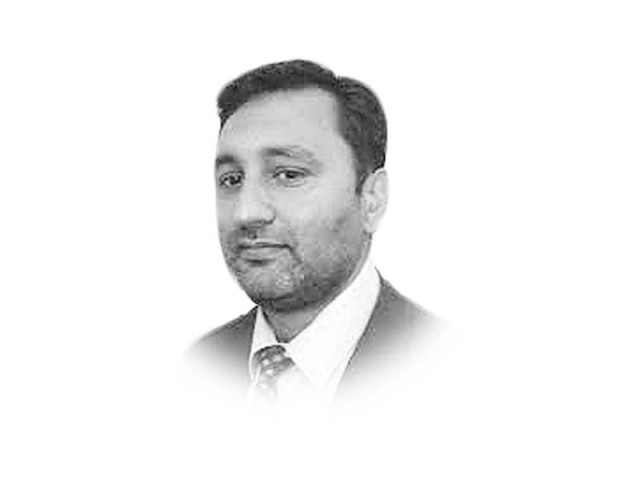The tales of politics and science
Accountability is a talk of the town in Pakistan, shouldn’t we also pose fresh questions to the Prime Minister?

The writer is a public policy researcher and practitioner. He tweets @naveediftikhar1
The royal support for the science and gesture of respect for the scholars is indeed a manifestation of visionary politics that has shaped the modern destiny of the world. King Sejong is not the only politician in the history to be revered for this act. Muslim rulers in the 9-10th centuries assembled scholars like valuable baubles in Baghdad and created a right ambiance for collecting and analysing the knowledge from all parts of the world, first time in the known history. The same knowledge laid the foundation for the modern science and research enterprise that we are benefitting today.
Fast forward, President Paul Kagame of Rwanda started the journey to take a landlocked and conflict-torn country to new heights at the start of twenty first century and the route was youth education, science, and entrepreneurship. He paid several visits to world-renowned universities including Massachusetts Institute of Technology (MIT) and showed his commitment to scientific research and development. Today, MIT is in the process of establishing a state of the art climate observatory in Rwanda, Carnegie Mellon University has started its campus, VISA is working for mobile finance solutions, and Knowledge Lab incubator in the telecom tower of Kigali is looking like the Silicon Valley. This is happening in a country where still professionals in some parts of the country have to send their laptops and electronics on bicycles for charging. Global Competitiveness Index ranking of Rwanda has improved from 80 in 2010-11 to 52 in 2016-17.
New York City (NYC) has been hosting a few of the world’s best universities but Mayor Bloomberg had a dream to further foster education, research and entrepreneurship in the applied sciences. In 2010, he started Applied Sciences NYC initiative and opened a challenge for the best institutions internationally to submit proposals for the establishment of a world-class applied sciences and emerging technology campus on the Roosevelt Island. The NYC offered; “City-owned land, a seed investment of City capital, and the full support of administration in making this project a reality.” It resulted in winning the competition by the Cornell University and Israel’s Technion. These institutions invested multi billion dollars for establishing a campus focused on startups and innovation. The same process was repeated later to attract other high-quality international educational consortiums to start operations in NYC.
Let’s turn to China with whom we are making connections through roads but in scientific research and technological cooperation. China has announced in its latest five-year plan to enhance research and development funding to the level of 2.5 per cent of the GDP which used to be 1 per cent in 2002. Recently, a news appeared in the Wall Street Journal that China had launched world’s first quantum communications satellite into the orbit and unveiled how China orchestrated it: “Beijing, meanwhile has tried to lure Chinese-born, foreign educated experts in quantum physics back to China, including Pan Jianwei, the physicist who is leading the project.” Mr Jianwei was quoted, “We’ve taken all the good technology from labs around the world, absorbed it and brought it back.”
What is common in these tales from different parts of the world? Obviously, it shows the state and politicians’ support for scientific research and entrepreneurship, openness to new ideas and knowledge, respect for talent and consistency to pursue value creation goals. The states not only supported knowledge creation but also systems of innovation to diffuse benefits of research and development.
We know that few efforts are underway in Pakistan in promoting scientific research and entrepreneurship but we can’t find the commitment from the top political echelons. Our situation is somewhat closer to the dark age of Europe about which Peter Frankopan has written in his book, The Silk Roads; “when the Muslim world took delight in innovation, progress and new ideas… St Augustine had been positively hostile to the concept of investigation and research. ‘Men want to know for the sake of knowing’… curiosity in his words, was nothing more than a disease”.
Nowadays, accountability is a talk of the town in Pakistan, shouldn’t we also pose fresh questions to the Prime Minister? How many visits has he made to the local and foreign universities since he assumed the office? How many centres of excellence in scientific research have been inaugurated by him?
Published in The Express Tribune, November 17th, 2016.
Like Opinion & Editorial on Facebook, follow @ETOpEd on Twitter to receive all updates on all our daily pieces.















COMMENTS
Comments are moderated and generally will be posted if they are on-topic and not abusive.
For more information, please see our Comments FAQ